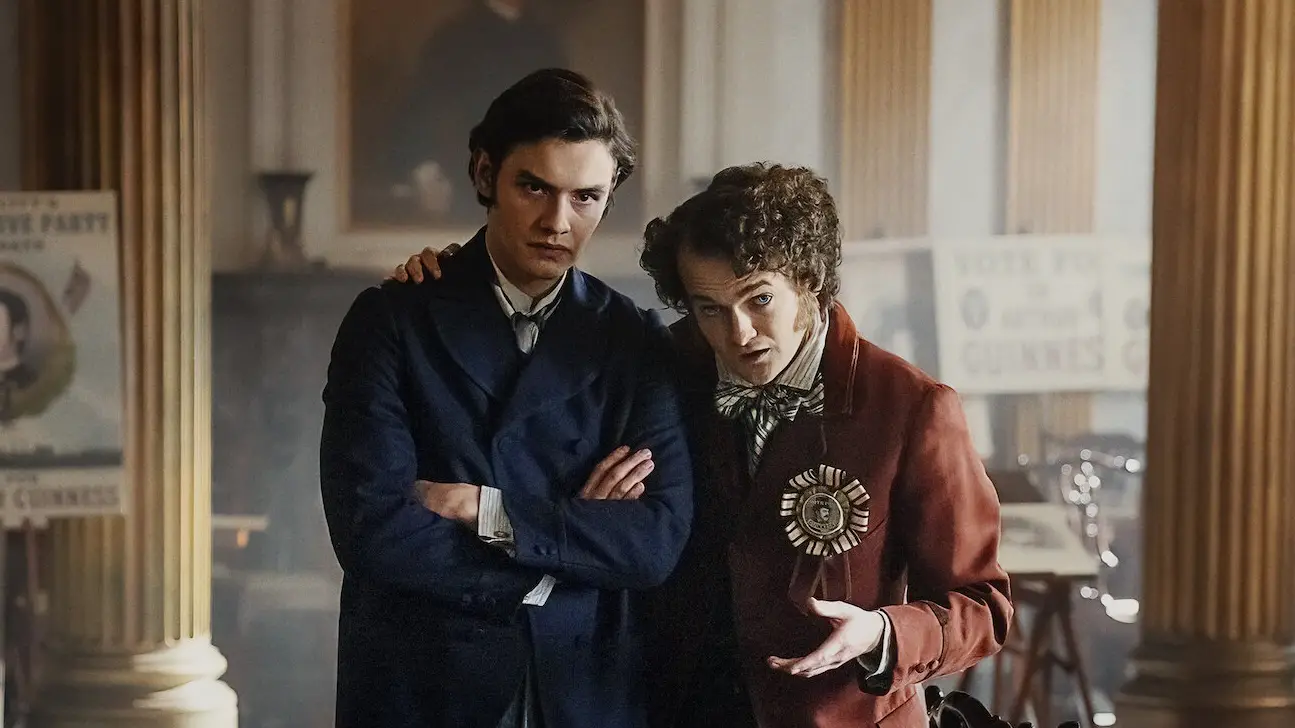
It's only been a few days since House of Guinness hit Netflix last week (25 September) and it's safe to say that, for many viewers, it's their latest obsession.
The eight-part series is set in the late 1800s in Dublin and follows the Guinness family following the death of patriarch Sir Benjamin Lee Guinness.
Over the course of the programme, Netflix viewers soon become privy to each of his four children's many dark secrets they've all been desperately trying to conceal as they try to uphold the Guinness family reputation while holding the brewery's fate in their hands.
It stars a bunch of familiar faces - some of which have been accused of having 'iPhone face' and therefore apparently not being fit for a historical period drama - including Derry Girls' Anthony Boyle, Enola Holmes' Louis Partridge, Happy Valley's James Norton, Game of Thrones' Jack Gleeson, Everything Now's Niamh McCormack, The Responder's Emily Fairn and Lakelands star Danielle Galligan.
Advert
Check out the official trailer here:
Now, it's important to note that the series makes a very big point at the beginning of each episode to outline: "This fiction is inspired by true stories."
It never actually claims to be a totally factual account of what went down all those centuries back, but, instead, acknowledges its nature as 'fiction' and explains that it's merely 'inspired' by stories relating to the Guinness clan rather than being the epitome of historical accuracy.
So, without further ado, here's everything that House of Guinness allegedly got wrong, according to Molly Guinness - the great, great, great granddaughter of Benjamin.
Sir Benjamin Guinness
The series starts with the death of Sir Benjamin, the grandson of the original Arthur Guinness, who founded the brewery.
"Of course, because he’s a patriarch on the telly, he becomes a Logan Roy for 19th-century Dublin, and after an Agatha Christie-style will reading, his four adult children, Arthur, Edward, Anne and Benjamin, are all left furious," Molly explained in The Times.
"It’s implied that he let his tenants starve to death in the famine and that he was a distant and overbearing father who callously cut two of his children out of his will. Very unfair: Benjamin was a loving father and a great philanthropist."
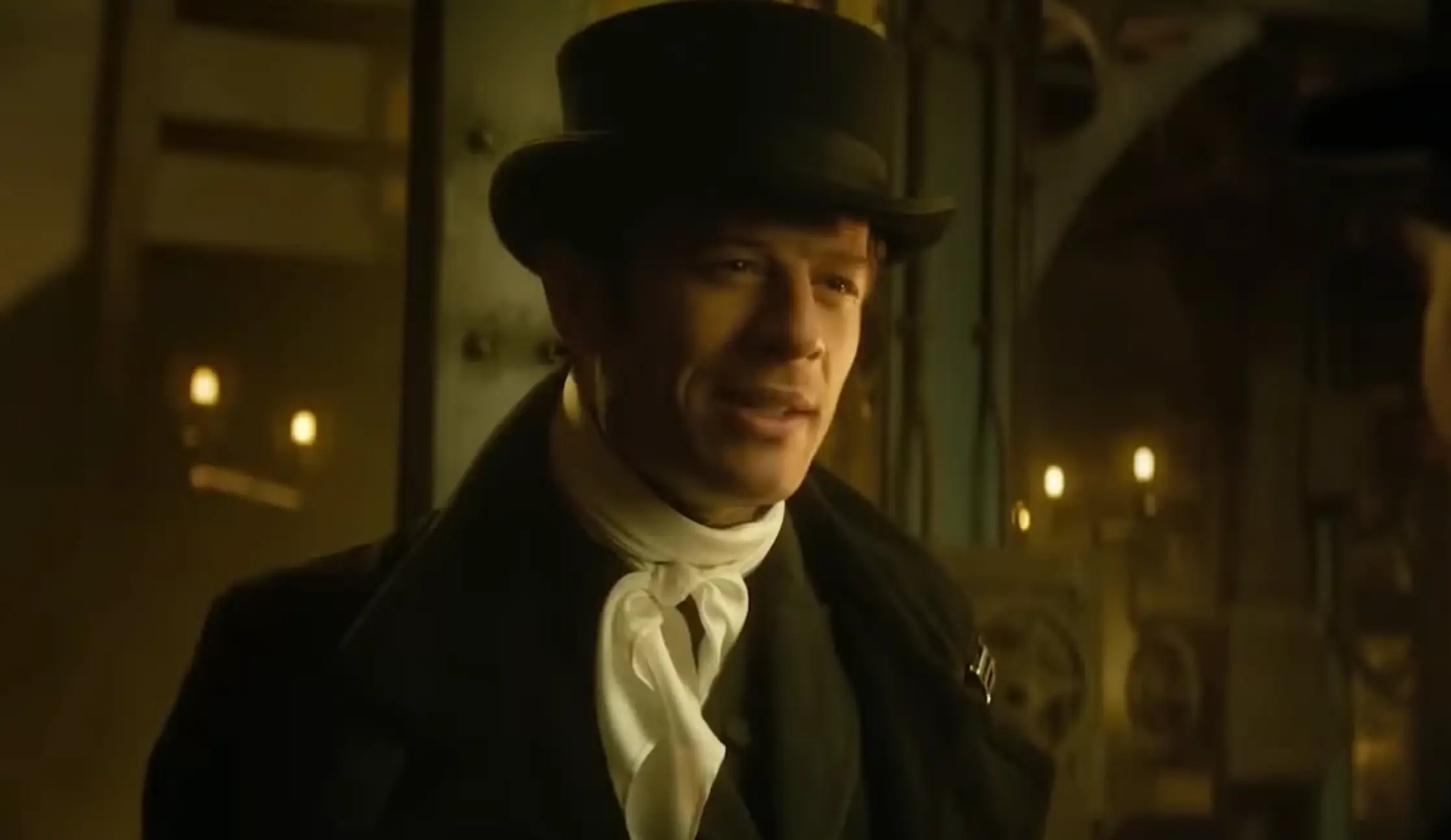
Guinness family charity work
While Molly acknowledges that the series gives the four Guinness children credit for the rebuilding of much of Dublin, 'replacing what were some of the worst slums in Europe with properly built houses and clean water supplies', she outlined that 'every charitable project is filmed through a lens of shame or self-preservation'.
"Anne (Emily Fairn) and Edward (Louis Partridge) are made to have sledgehammer epiphanies and inappropriate love affairs before they notice the plight of the poor," she wrote.
Sean Rafferty
Speaking to The Times, Molly shared her thoughts on the character of Rafferty, who is played by Norton.
"Here’s James Norton … oh no, he’s not a Guinness family henchman, is he? Surely not. Or, to be more in keeping with Steven Knight’s script, perhaps I should say f*cking hell. I watched with my cousin Sachin, who has a firmer grip than I do on the history," she wrote.
Molly explained that she and Sashin 'hooted with laughter' through the first two episodes, adding: "As Sean Rafferty, Norton specialises in lines such as 'Oi’ve worked for your family for 20 years and I know that inside every one of yous there’s a woild, woild black cat.'
"Alas, I suspect this characteristic has been bred out of us over the generations."
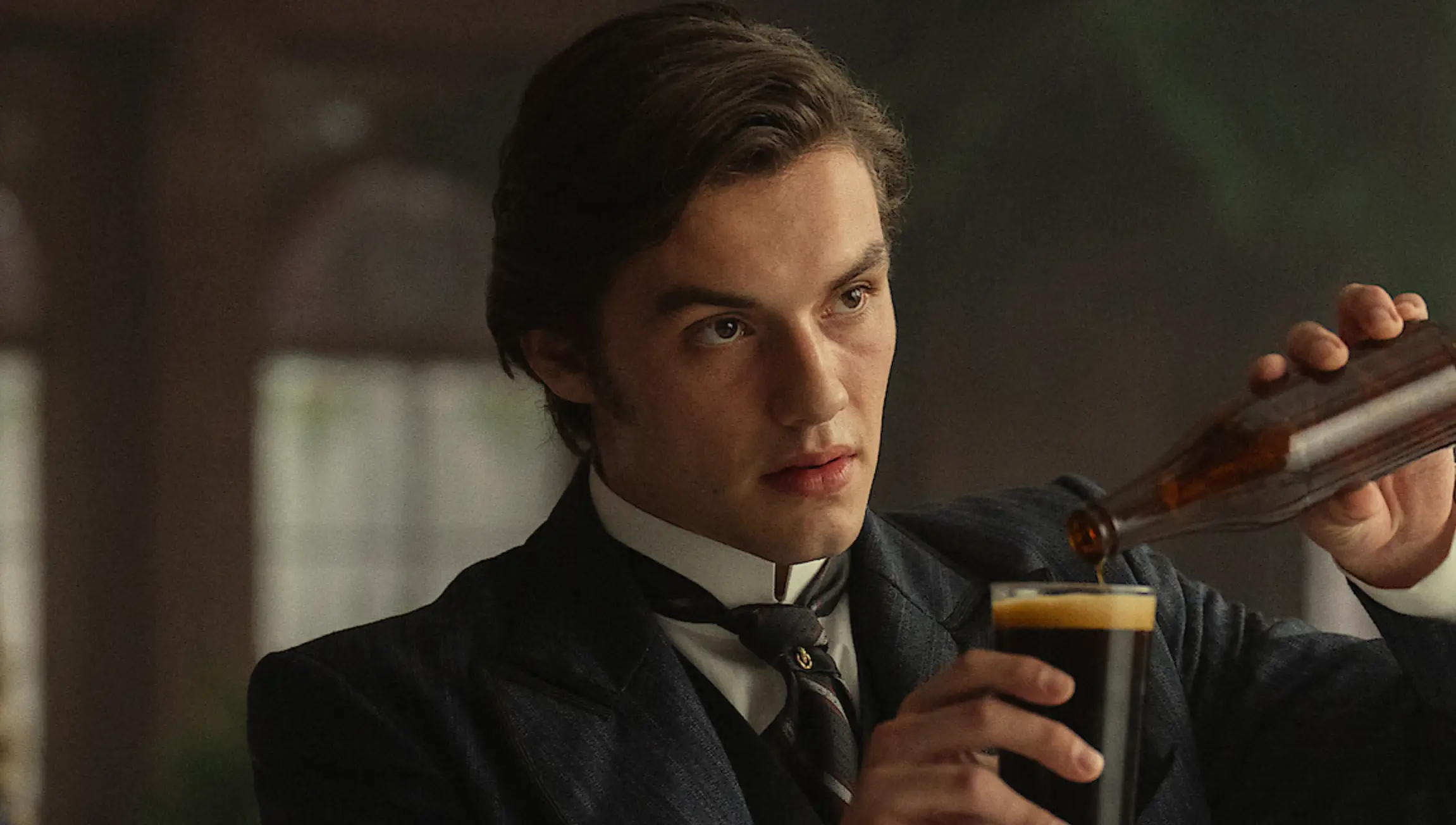
Edward Guinness
Continuing her fact-checking, Molly pointed out that the appearances of the actors playing the Guinness brothers did not match up with the reality.
"Are we supposed to believe that Edward Cecil Guinness is the taller one without a moustache?" Molly said her cousin Sachin exclaimed. "He didn’t look anything like that."
Molly went on to note that Edward's English home, Elveden, was 'so grand it had a plate room, a knife room, a still room and two brushing rooms'.
However, she points out, 'the sums of money that he would give away were astonishing'.
According to Molly, a quarter of a million was donated for research into infectious diseases, a stately home (Kenwood House) was given to the nation, a few thousand pounds was given to Ernest Shackleton’s expedition and about a million pounds was put towards housing trusts in London and Dublin.
She also lists 'generous gifts to charities in Suffolk, universities in Dublin and so many other projects'.
"Arthur bought and landscaped St Stephen’s Green, then gave it to the city of Dublin so that people could have an outdoor space to enjoy. Even The Freeman’s Journal, which had a history of public rows with Arthur, gave him credit for 'characteristic modesty, noble generosity and a public spirit which was hereditary'," Molly added.
She also detailed Edward's (also known as Ned) marriage to Adelaide. In the series, Edward was besotted by Fenian, Ellen Cochrane, was somewhat forced into marrying Adelaide to uphold the family name.
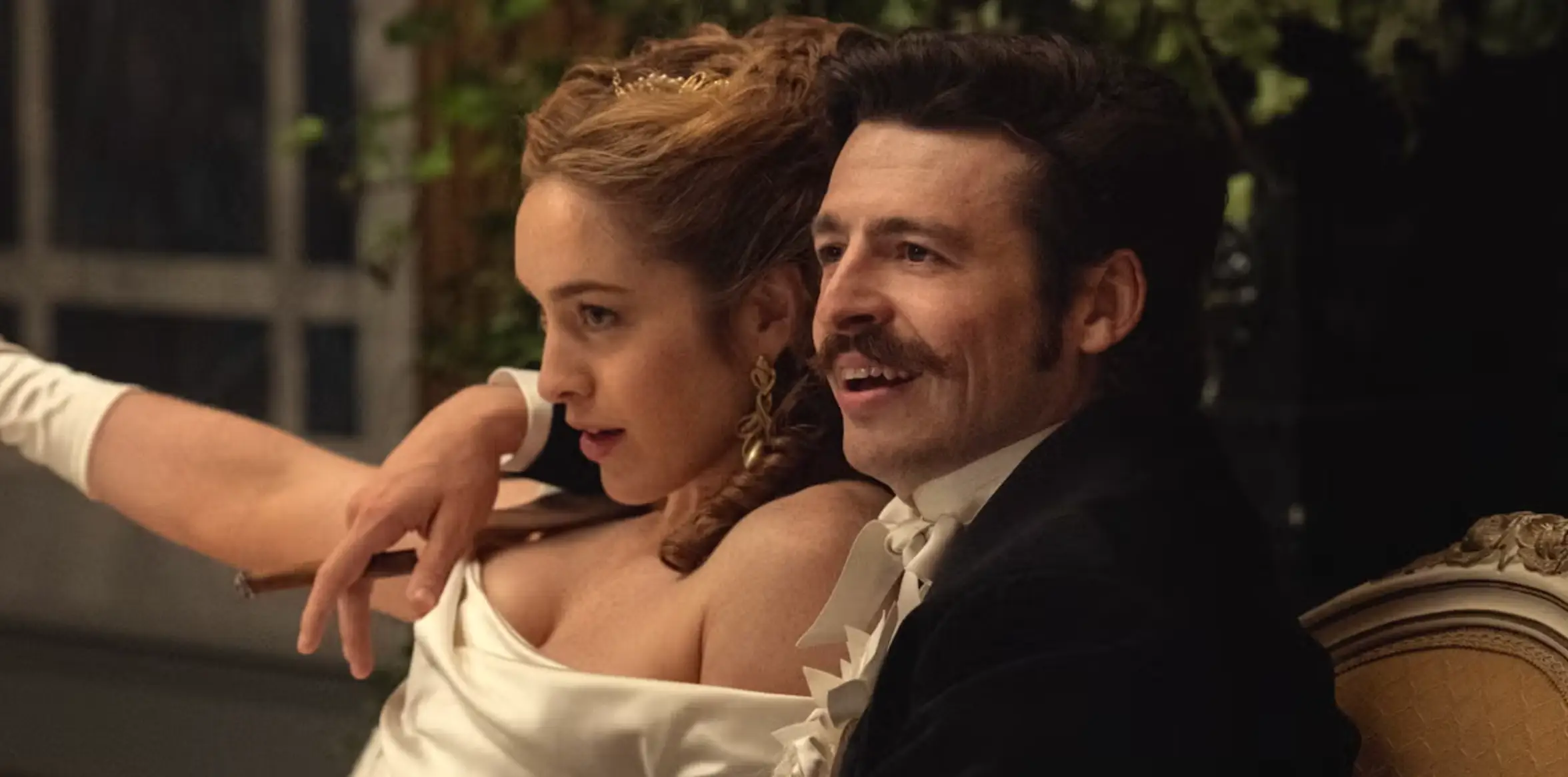
"Edward (known as Ned) was really in love with a beautiful Irish nationalist on the docks, but felt he ought to marry Adelaide because, as another Guinness, she was 'someone he can trust who already knows how mad we all are'," she wrote.
"Seeing this made it extra moving to read in Guinness: A Family Succession that Adelaide died in her husband’s arms and 'her bedroom at Elveden remained untouched for the rest of Ned’s life, including the flowers which had stood there at her passing'.
Arthur Guinness
In the series, Arthur is depicted as having multiple gay romances with men but according to Molly, his 'gay exploits' were entirely 'invented'.
She did, however, say they allowed 'for some rich comedy'.
"At a moment of forbidden ecstasy, the actor playing him, Anthony Boyle, with his magnificent moustache, comes out with, 'Lord God almighty, what it is to be a Guinness.' Just thinking about watching this with my aunts made me blush, although it’s sure to become a useful gif on my sibling WhatsApp group," she joked.
As for his marriage, the series depicts his relationship with Olivia (Galligan) as being false - on account of his being gay.
"It goes without saying that rich people on TV can’t have happy marriages. In the Netflix version, Arthur and Olivia’s marriage is all for show," Molly noted.
Guinness family parties
"It’s true they gave magnificent parties," Molly approved, referencing her cousin Arthur Edward Guinness's new book, Guinness: A Family Succession, which tells the story of how a fancy-dress ball in 1881 was seen by the Dublin press as an act of patriotism due to all the costume orders that came in to boost the economy.
"Netflix revels in wild (sorry, woild) parties too," she added. "A butler showing round some new maids says, to a backing track of sighs and groans, 'Copulating couples must not be disturbed and are to be cleaned around.'"
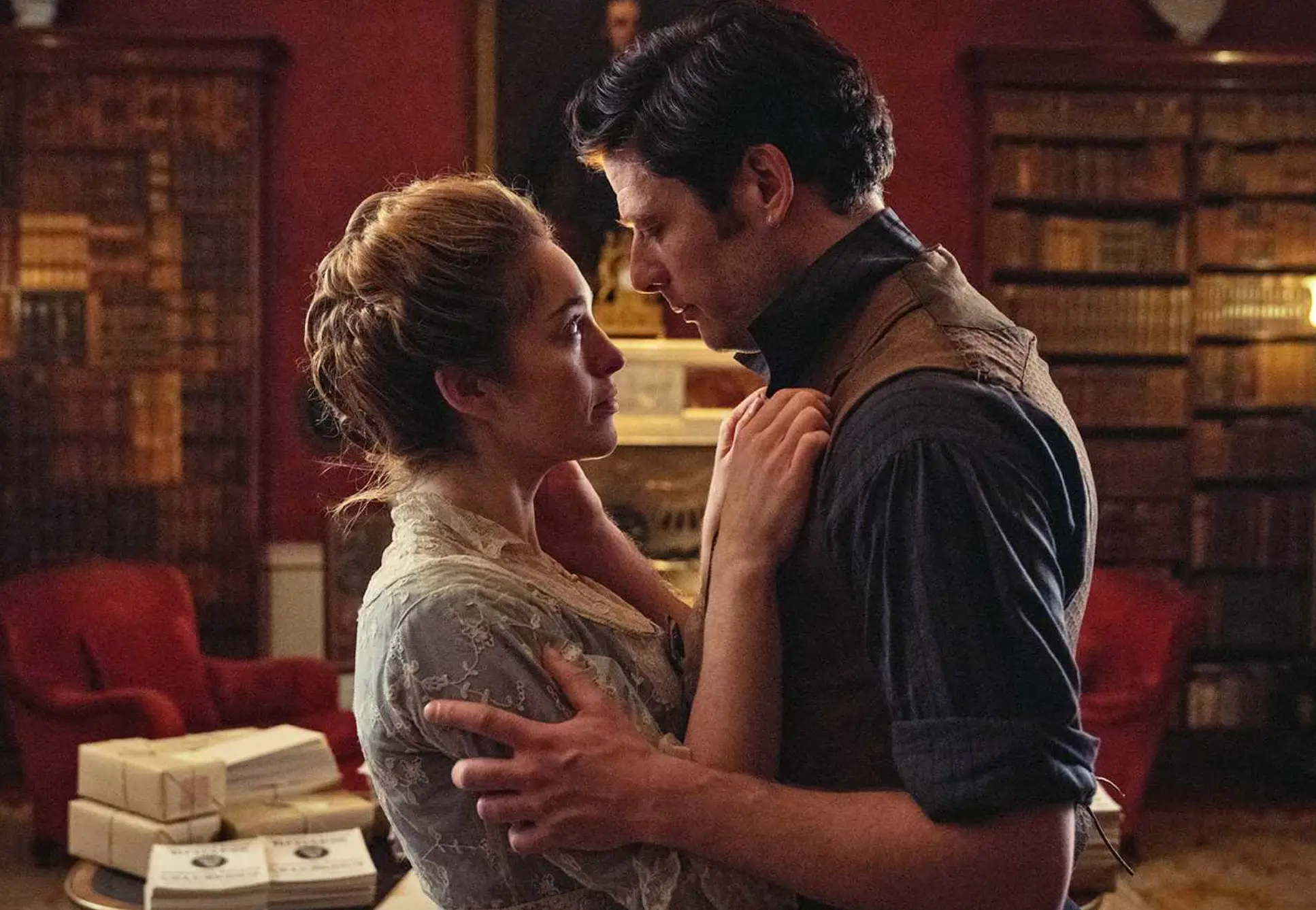
'A bingo card of modern clichés'
Referencing what she's dubbed 'the weaselly old Netflix disclaimer' that reads 'this fiction is inspired by true stories', Molly went on: "So it’s art, I suppose, and I shouldn’t be a bore.
"Yet the more I watched, the more indignant I became. It’s been about a century since the deaths of my great-great-grandfather Edward and his brother Arthur, and they have had a good run since then, but it still seems unjust to turn them into knaves and fools.
"In fact, all the characters come straight from a bingo card of modern clichés about rich people."
The bottom line
Molly rounded off The Times article writing: "The thing is we do all feel proud of the delicious beer, the funny advertisements and high-quality merchandise, but what we feel even prouder of is the Guinness Trust houses and the idea that as more and more pints were sold round the world, our ancestors noticed what needed to be done, at a time when the state did so little - and wrote out cheques."
She resolved: "So I confess I did have an episode of righteous fury, but I watched most of it in a vacuum because it was a preview. The prospect of the laughter of all my brothers and cousins once they get their hands on it is a real joy.
"At all those parties where we only speak to each other, we have so much to discuss."
House of Guinness is currently available to stream on Netflix.
Topics: Real Life, True Life, Netflix, TV And Film, Explained